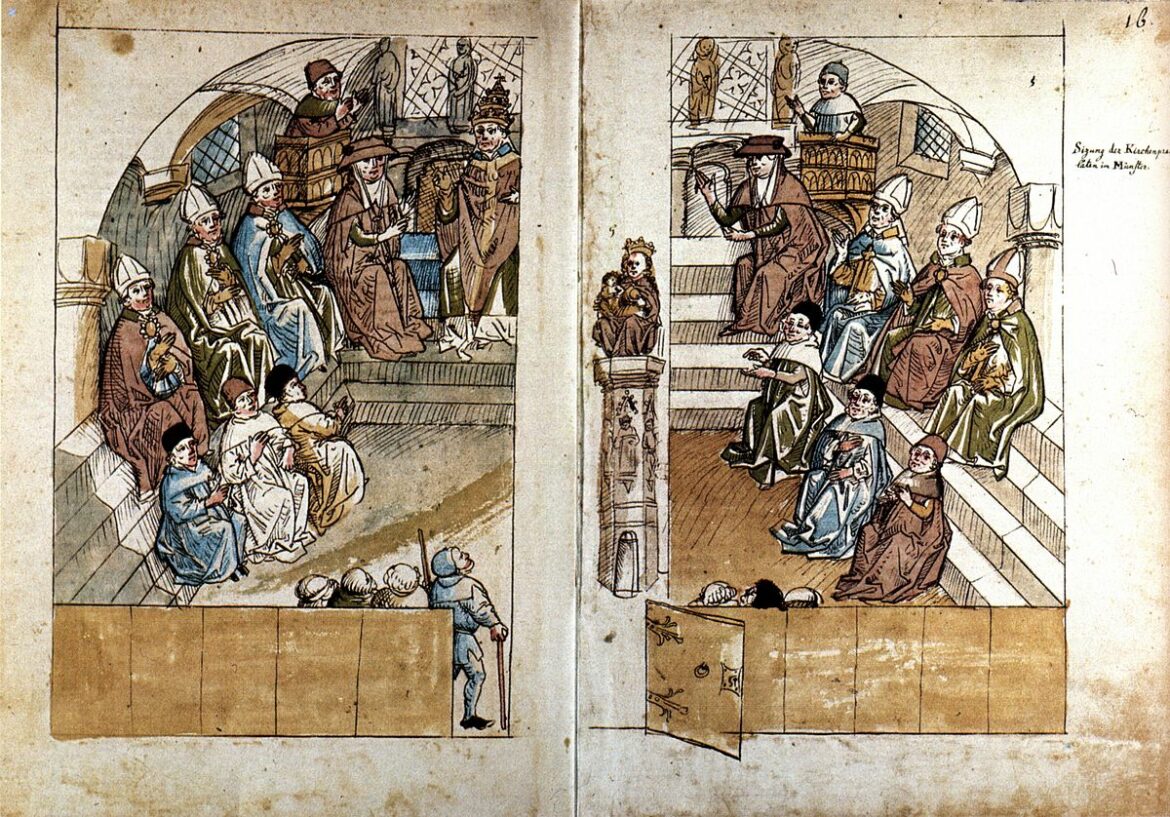During the Crusades in the 12th century, the Teutonic Order, also known as the German Order, was established in Jerusalem. Due to the unsustainability of their conquests in Palestine, the monks tried to settle in Hungary, but were expelled from there. In 1226, they were taken in by the Polish Duke Konrad of Mazovia. This resulted in the aggressive growth of the Teutonic state in Prussia, threatening its neighbours, including Poland, and spawned a conflict, culminating in one of the greatest battles of the Middle Ages. The dispute with the Teutonic Knights, supported from Germany, did not end in 1410 on the fields of the battle of Grunwald. The Poles decided to reach for philosophical and legal arguments.
With the Council of Constance which began in 1414, Europe hoped for an end to the Great Western Schism and a resolution of conflicts, including the Polish-Teutonic dispute. King Ladislaus Jagiello of Poland sent to the Council Paweł Włodkowic, rector of the Krakow Academy, who was accompanied by experienced lawyers and diplomats. Włodkowic drafted papers that undermined the very existence of the Order and its rule in Prussia, so he argued that the Council should force the Order to leave the occupied territories.
He presented the rationale, developed by the Polish side (including Andrzej Łaskarzyc and Stanisław of Skarbimierz), to the Council. He argued that pagans living in peace could possess their states by natural law. He pointed out that the Teutonic Knights had waged unjust wars with the pagans, breaking all law. At the same time, he taught that in the Christian world, all people are fellow human beings, including pagans and infidels, and therefore, if they live in peace, they cannot be attacked, robbed and violently forced to accept Christianity.
The Teutonic Knights used their influence to repel the arguments of the Polish side. Włodkowic successfully defended his position, but the Council, preoccupied with many issues, did not initiate a trial against the Teutonic Knights. In the absence of results from the dispute, Włodkowic sought the opinions of eminent Italian lawyers. However, the conflict with the Teutonic Knights ended only after the Germans lost the war of 1519-1521. As a result, the Order’s Grand Master Albrecht Hohenzollern converted to Lutheranism, which put an end to the monastic state, and Prussia became a fief of the Kingdom of Poland in 1525.





